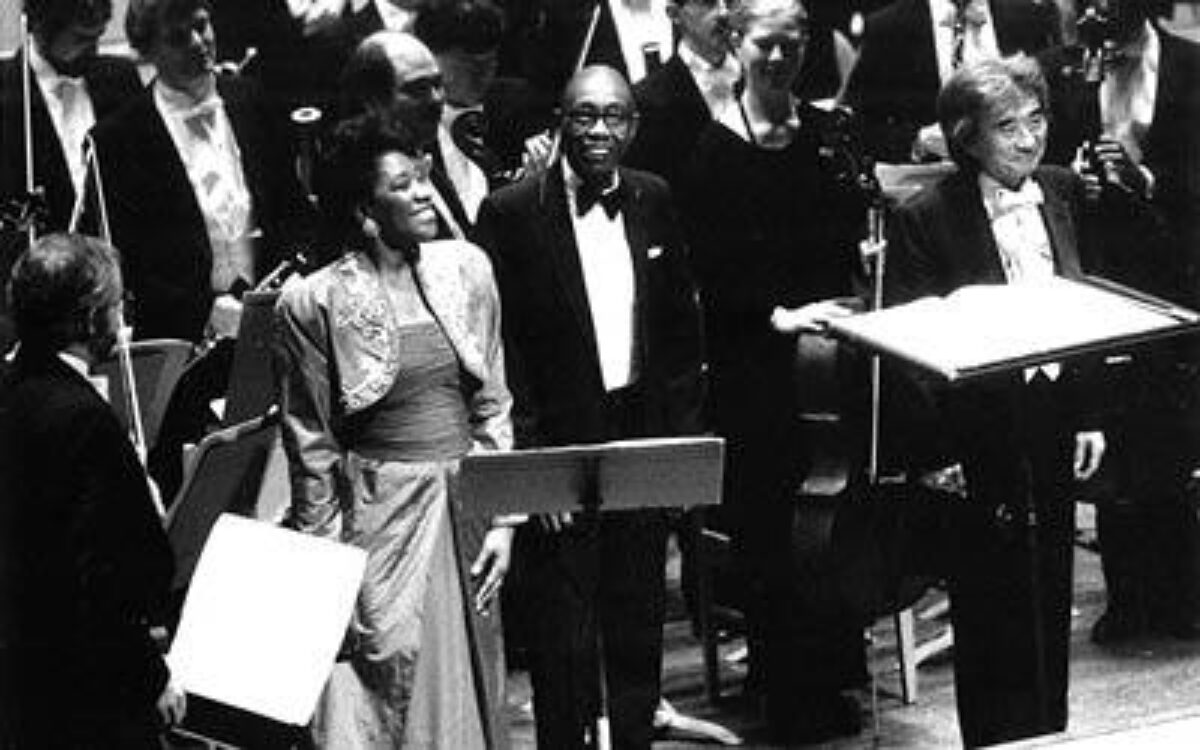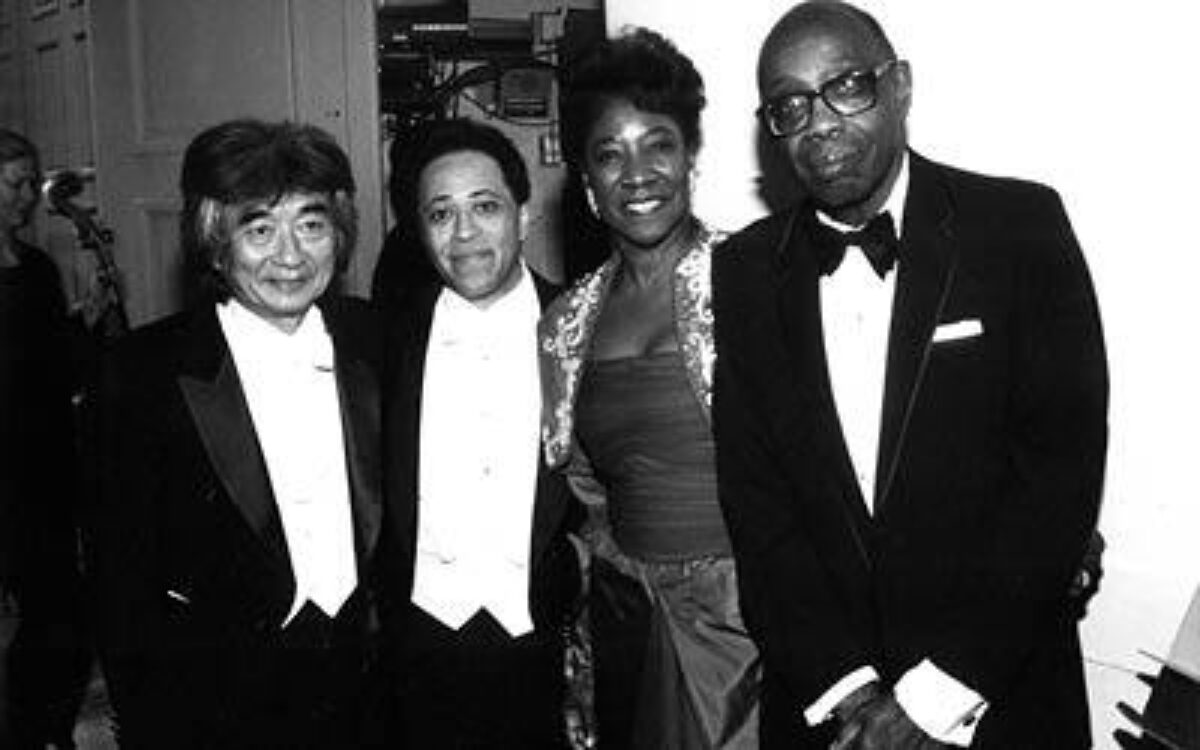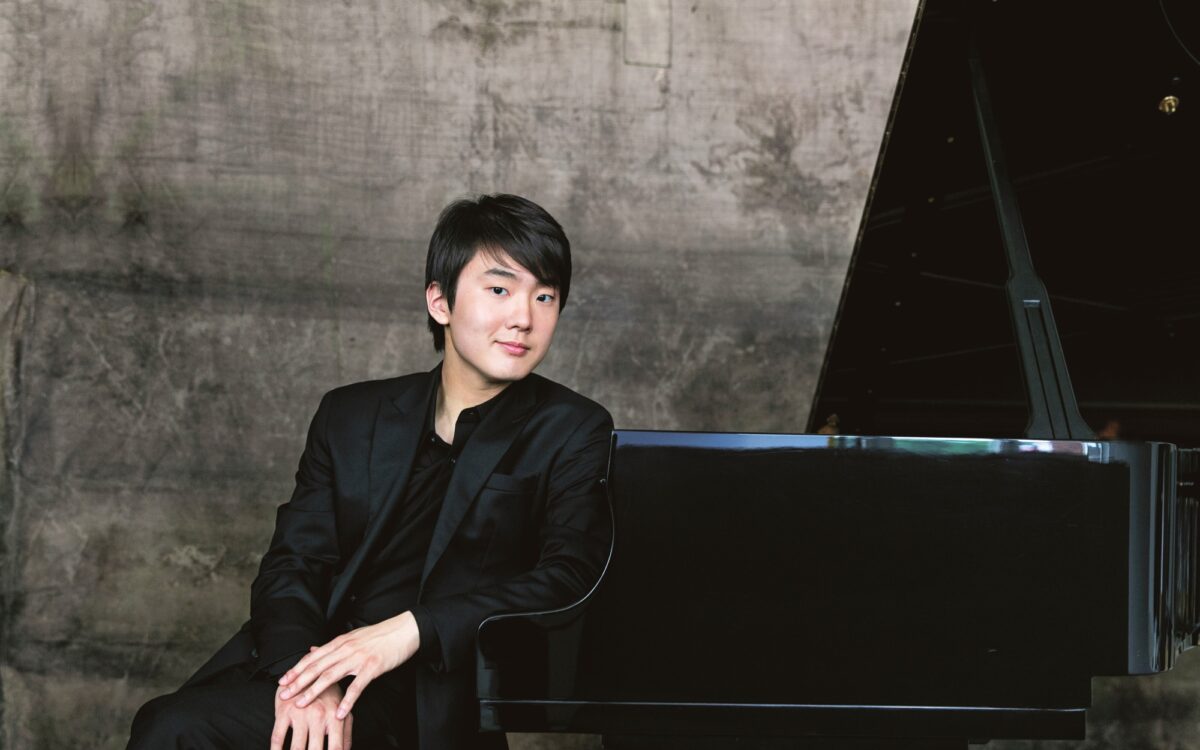Honoring Juneteenth: A Celebration of Black Artists
Recognized as a national holiday in 2021, Juneteenth National Independence Day (known simply as Juneteenth) commemorates when, on June 19, 1865, the enslaved men, women, and children of Galveston, TX, became freed – over two years after President Lincoln issued the Emancipation Proclamation.
This Juneteenth, explore some of the featured programming in the upcoming 2022 Tanglewood season written and performed by Black artists.
Edward Kennedy “Duke” Ellington’s New World A-Coming, for piano and orchestra
About the piece:
- Premiered: 1943 at Carnegie Hall
- This work was later orchestrated for symphony performance
- New World A-Coming takes its title from a 1943 book by Roi Ottley titled New Day A-Coming: Inside Black America, which details the social history of Harlem as a Black community
- Ellington’s Carnegie Hall concerts in the 1940s, during one of which this piece was premiered, are considered a watershed in opening the world’s eyes to the sophistication and uniqueness of jazz as a significant American art form
“I visualized this new world as a place in the distant future, where there would be no war, no greed, no categorization, no non-believers, where love was unconditional, and no pronoun was good enough for God.” – Duke Ellington
Richard Danielpour and Rita Dove's A Standing Witness
About the piece:
- A co-commission with Music from Copland House, and will be performed at Ozawa Hall on July 21, 2022
- Collaboration between Grammy Award-winning composer Richard Danielpour and Pulitzer Prize-winning author and former U.S. Poet Laureate Rita Dove
- This piece is a sweeping retrospective tracing enormous social, cultural, technological, and political upheavals in the U.S. since the watershed year of 1968
Upcoming performance:
Enjoy a pre-concert talk with Richard Danielpour, Rita Dove, and Michael Boriskin at 6:30pm in the Linde Center for Music and Learning.
William Grant Still’s In Memoriam: The Colored Soldiers Who Died for Democracy
About the piece:
- Written: 1930
- Premiered: 1944
- First BSO performance: 1945 under the direction of George Szell
- The BSO performed this piece again from February 1-3, 1996, under the direction of Seiji Ozawa, as part of "A Tribute to Roland Hayes"
- William Grant Still was one of 17 composers invited by the League of Composers to write a short orchestral work commemorating World War II
- One of the most frequently performed American composers in the mid-20th century, Still's works usually mined the African American experience in the U.S., often using elements of the blues to make his programmatic connections clear, as he does in this piece
“I also hope that our tribute to those who died will make the democracy for which they fought greater and broader than it has ever been before.” – William Grant Still
George Walker’s Lilacs, for soprano and orchestra
About the piece:
- Premiered: February 1-3, 1996, by the BSO, led by Seiji Ozawa, featuring American soprano Faye Robinson, co-commissioned by the BSO as part of "A Tribute to Roland Hayes"
- The text comes from the 1865 poem “When Lilacs Last in the Dooryard Bloom’d,” Walt Whitman’s tribute to Abraham Lincoln following his assassination. Walker chose the text in part for its relevance to Black American history

Curtain call bows following the world premiere of George Walker's Lilacs at Symphony Hall on February 1, 1996. From left to right: Soprano Faye Robinson, composer George Walker, and conductor Seiji Ozawa.

Backstage following the premiere of George Walker's Lilacs at Symphony Hall on February 1, 1996. From left to right: Seiji Ozawa, Vinson Cole, Faye Robinson, and George Walker.

